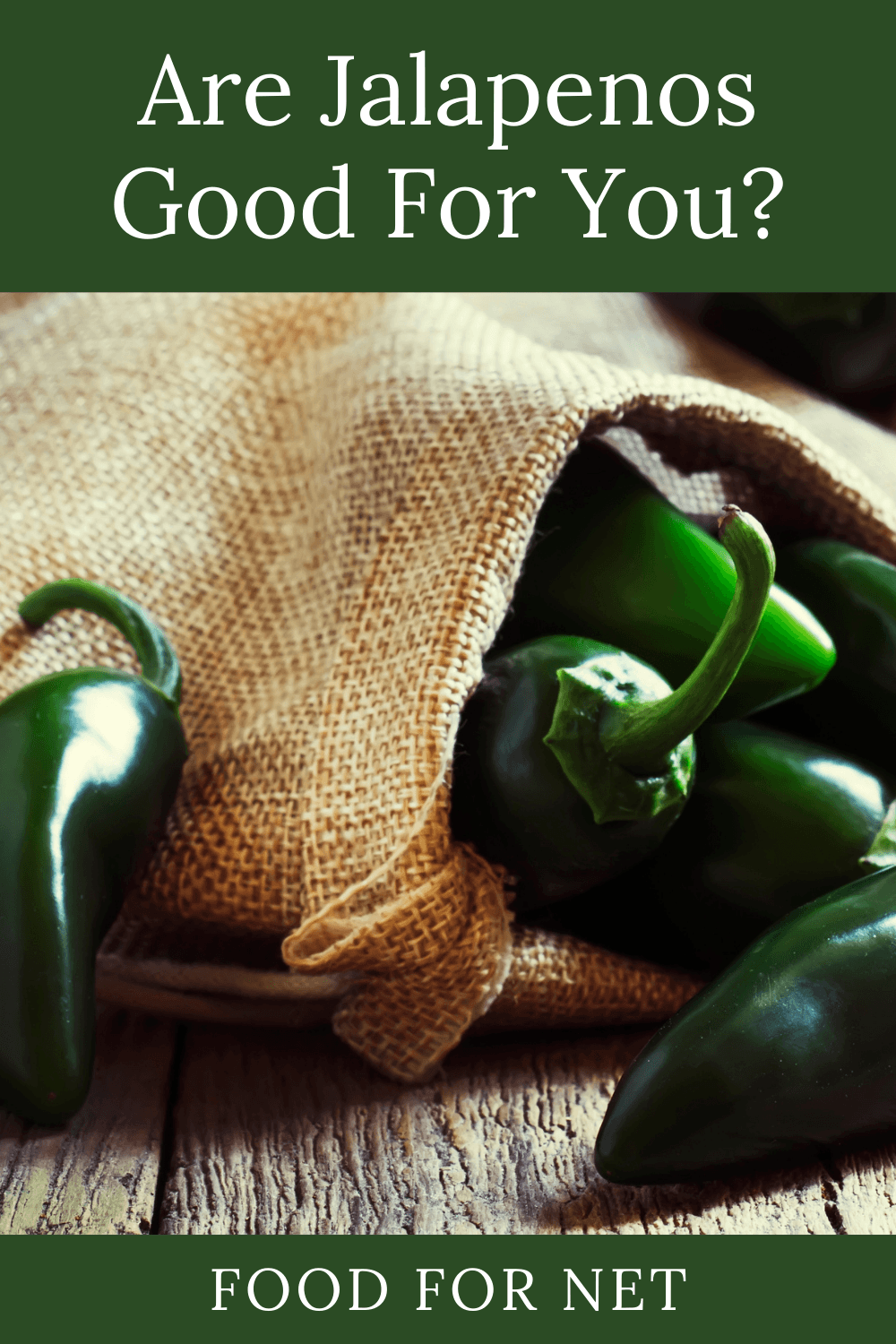
Jalapenos are delicious small hot peppers, ones that we often use to give our meals an extra kick. Jalapeno poppers are one simple way to use them and you’ll also find the hot peppers featuring in many Mexican dishes, along with plenty of other meals. They’re the perfect introduction to spicy food, as they have some heat to them, but they’re not overwhelmingly spicy. But are jalapenos good for you?
Despite their popularity, jalapenos aren’t without controversy. Some people don’t like the heat at all, while others are worried about how the spiciness affects their health.
That brings us to the question of the day: are jalapenos good for you? It’s easy to assume that they’re not, as many people imagine that spicy foods aren’t good for you. After all, the heat can feel uncomfortable, so it’s not such a leap to imagine that the food is doing you harm.
However, this isn’t really the case. Spicy foods have been used throughout history. They’ve even been a part of traditional medicine and there are plenty of benefits to be found.
Are Jalapenos Good For You?
- Benefits of Jalapenos
- How Jalapenos Could Be Harmful
- Can Jalapenos Cause Kidney Damage?
- Do Jalapenos Decrease Your Cancer Risk?
- What’s The Difference Between Red And Green Jalapenos?
- Jalapenos Versus Chipotle
- How Hot Are Jalapenos?
- Jalapenos Versus Other Hot Peppers
- Final Thoughts
Benefits Of Jalapenos
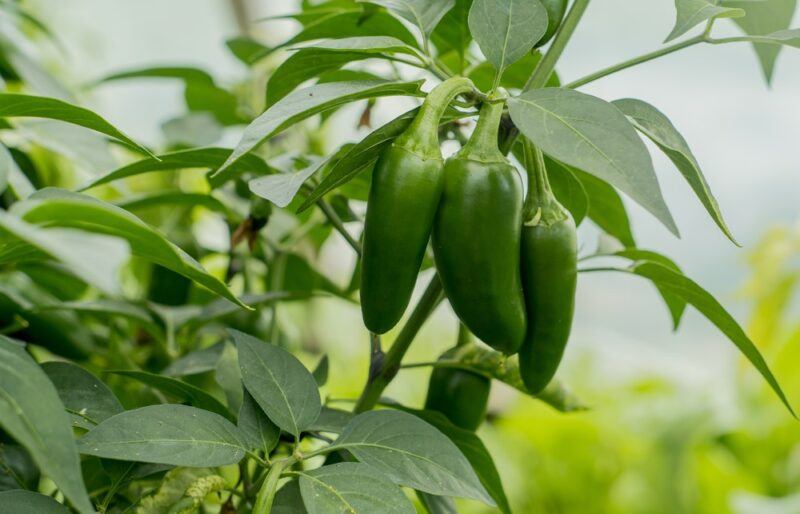
Might Help With Weight Loss
Spicy foods are often thought to help with weight loss, as they can speed up your metabolism and increase fat burn. This isn’t just hype either. The effect has been shown in multiple studies, leading to an increase in energy spent of roughly 4% to 5%.
Hot peppers also help to decrease your appetite slightly. If you eat based on appetite, then this decrease could easily lead to less food consumption and thus to weight loss.
There’s one more factor too – it’s hard to eat spicy foods quickly. You’re forced to slow down and savor the experience, which helps your body’s hunger signals to catch up to the food you’re eating. This effect helps you to feel full sooner and also keeps you mindful about your food. Pretty amazing, right?
Most of these benefits relate to capsaicin, a compound that is found in jalapenos and is responsible for their heat.
Of course, no food is going to change your weight loss journey overnight. Eating jalapenos may help, but the effect is subtle at best. You’ll still need to focus on your overall diet, which includes eating plenty of healthy whole foods.
Could Decrease Stomach Ulcer Risk
The heat of spicy foods is often thought to increase the risk of stomach ulcers. Interestingly though, the reverse effect may be true. The capsaicin found in jalapenos and other hot peppers actually helps to protect the stomach by inhibiting acid secretion.
This means that spicy foods might be just what your stomach needs. They become even more important if you’re highly stressed, if you smoke, or if you rely heavily on NSAIDs, as those are all risk factors for stomach ulcers.
They’re A Decent Source Of Nutrients
Jalapenos are normally eaten for their heat, rather than their nutrient profile. Still, they do have some important nutrients, including vitamin C. In fact, a cup of sliced jalapenos provides around two-thirds of your daily vitamin C intake.
There’s also a considerably amount of vitamin B6, some vitamin A, and folate, along with smaller amounts of nutrients like iron, magnesium, copper, and potassium.
I’m sure I don’t need to tell you why these nutrients are so important. They all play valuable roles in our body, helping us to grow and develop well, while lowering our risk of disease. To be healthy, you need to hit your daily targets for all the essential vitamins and minerals.
Jalapenos are one tool for doing this.
Their low calorie content helps too, as it’s incredibly easy to add jalapenos to your diet. I mean, a whole cup of sliced jalapenos only contains 27 calories. That’s pretty amazing.
Of course, the calorie content won’t be the main thing limiting your jalapeno intake. For most of us, the heat of jalapenos will influence the amount that we eat much more than the calorie content.
Their Fiber Content
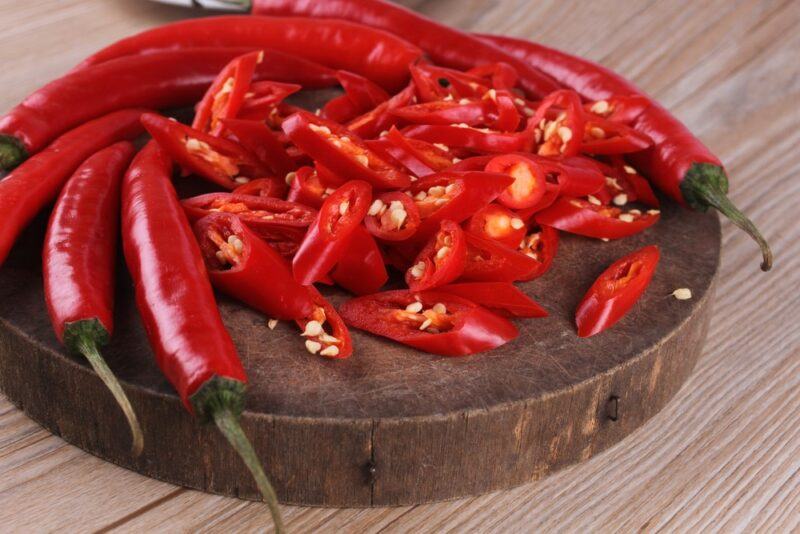
Fiber is fairly common. You get some of this macronutrient in most fruits and vegetables. Despite this, many of us don’t get enough fiber each day.
Modern diets may be part of the problem here, as we’re often relying on heavily processed foods, which are often low in fiber. Focusing on fresh fruits and vegetables instead can help you to increase your fiber intake and boost your health.
Jalapenos are a decent choice for fiber, with a cup of sliced jalapenos providing roughly 2.5 grams of fiber. This fiber can have many benefits, including decreasing the risk of heart disease, type 2 diabetes, and perhaps even cancer.
Plus, jalapenos are lower in sugar than most fruits (and some vegetables). This is always helpful, given that many of us need to cut down our sugar intake.
Of course, the amount of fiber you get from your jalapenos will depend on the serving size. The little peppers can be intense, so you might not be having many at a time.
May Lower Heart Disease Risk
Jalapenos have been linked to better heart health too, as they can improve some key risk factors, including high blood pressure and cholesterol.
Some studies also show a blood sugar stabilizing effect, where jalapenos can prevent blood sugar spikes from high carb meals. This effect could decrease the risk of diabetes, which is relevant for your heart too, as diabetes is a heart disease risk factor.
If you do already have diabetes, then the blood sugar stabilizing effect could help you to manage the condition and reduce the risk of serious complications.
It’s important to mention, however, that these effects are linked to the capsaicin in jalapenos. Research typically focuses on capsaicin itself, rather than jalapenos. It isn’t clear whether dietary amounts of jalapenos contain enough capsaicin to promote this heart benefit.
Still, regardless of whether there’s enough capsaicin or not, you’re getting plenty of antioxidants and fiber from jalapenos, which help with your heart as well.
May Fight Infections
Here’s another important area – jalapenos are linked to improved immune function. They can also help to slow down the growth of various bacteria and yeasts, which is why they’re sometimes used to help food last longer.
This effect may be relevant to humans too, helping to fight infections like strep throat.
Again, research has focused on capsaicin and chili pepper extracts, rather than whole jalapenos, but some of the benefits could easily apply to jalapenos as well.
They’re Low In Carbs
Jalapenos are naturally low in carbs, making them a fantastic ingredient on any keto or low carb diet. In fact, a single jalapeno often contains less than one net gram of carbs.
The low carb content is why jalapeno poppers and other jalapeno-based snacks are often included as keto party snacks.
The low carb content is very relevant, as there are many concerns about the health effects of carbs. Many people feel that we consume too many carbs these days – a pattern that might lead to increased inflammation and higher disease risk. Focusing on low carb ingredients instead, like jalapenos, is a great way to keep carb intake in check, while still enjoying delicious food.
They Provide Antioxidants
Like most fruits and vegetables, jalapenos provide antioxidants as well. These compounds do exactly what the name suggests – they help to reduce oxidation.
Now, oxidation itself is a natural and important chemical process. However, there’s often too much of it occurring, which might increase our risk of disease and other health problems.
Consuming an antioxidant rich diet is thought to help in a variety of ways. The antioxidants may decrease the risk of various diseases and protect against some of the side effects of aging. Research has even linked spicy foods to longer life and the antioxidants may be one reason for this effect.
Pigment molecules are some of the most powerful antioxidants. Because of this, red jalapenos may provide more antioxidant benefits than green ones.
How Jalapenos Could Be Harmful
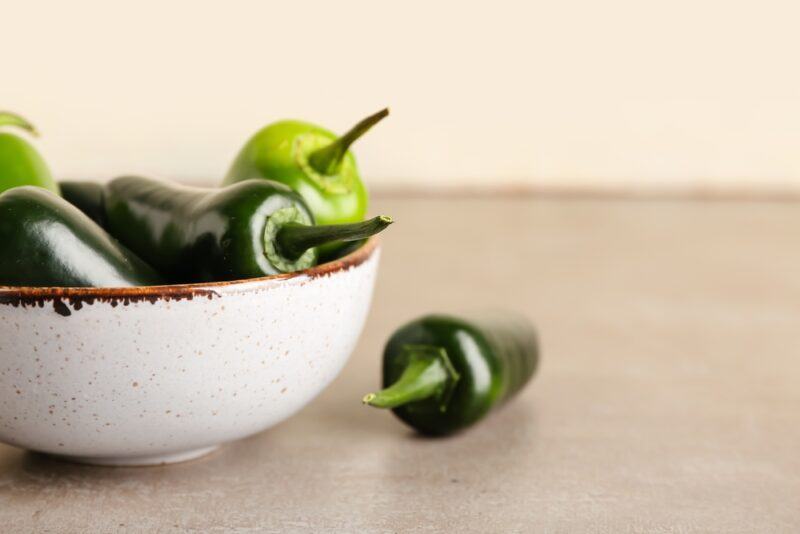
They Burn Your Mouth
The most obvious issue with jalapenos is how they make your mouth feel, as they create a temporary burning sensation. This sensation isn’t too bad for jalapenos, as they’re on the low end of the heat scale. Other peppers have a much stronger burning sensation. Still, it is a noticeable effect that can be uncomfortable.
If your spicy food tolerance is low, focus on green jalapenos rather than red ones. Avoid scarring on your jalapenos too, as jalapenos with scarring tend to be spicier.
You can also drink milk straight after eating jalapenos. This reduces some of the mouth burn, making the peppers easier to tolerate.
May Make Heartburn Worse
Some people find that jalapenos make their heartburn symptoms worse. So, if you deal with acid reflux, you might need to avoid jalapenos entirely.
Can Increase IBD Symptoms
Jalapenos can also be an issue for anyone with irritable bowel syndrome (IBD), leading to side effects like stomach cramps, diarrhea, and bloating. This isn’t surprising, as IBD means that your digestive system is sensitive and you need to be cautious about the types of food that you eat.
There aren’t any hard and fast rules here though. While jalapenos often trigger heartburn and IBD symptoms, this effect isn’t guaranteed. Some people with IBD or acid reflux may be able to eat jalapenos without any problems at all, while others might be sensitive to even a tiny serving of the peppers.
Jalapenos Can Be Contaminated
It’s easy to forget that food poisoning isn’t just a problem that happens with meat. Fruits and vegetables can become contaminated as well, to the extent that they can make you quite sick.
This has been a significant problem in a few cases, including once when jalapenos played a role in a Salmonella outbreak that affected more than 1,000 people. Such contamination is rare, but it’s a reminder that food safety is still important with vegetables.
If this area worries you or if you have a compromised immune system, you might choose to cook your jalapenos rather than eating them fresh. You’ll still get the same benefits, while also decreasing your risk of consuming harmful bacteria.
Can Jalapenos Cause Kidney Damage?
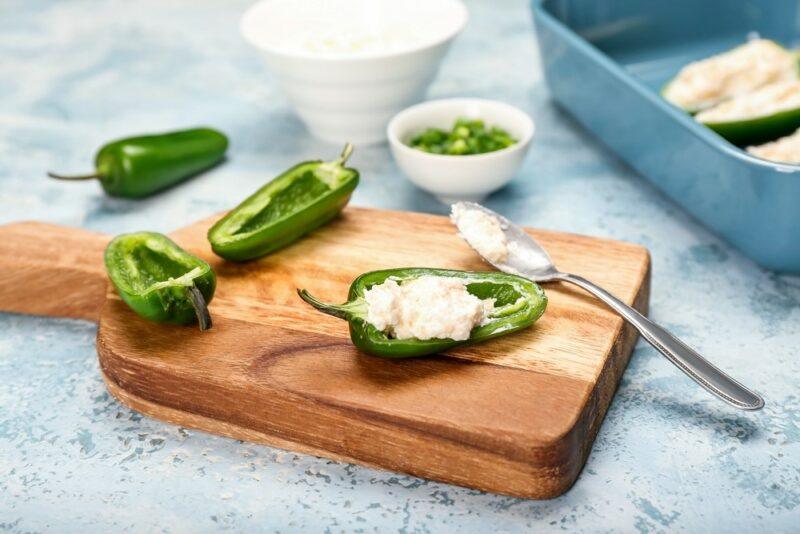
Some recommendations suggest that you should be cautious with jalapenos, as high jalapeno intake could cause kidney damage. However, this area is heavily debated.
For one thing, this proposed effect comes from high doses of capsaicin for extended periods of time. Jalapenos are relatively low in capsaicin compared to other spicy peppers and capsaicin extracts, so you’re unlikely to overdo it with jalapenos alone.
There is also evidence for the reverse perspective, that chilis can decrease the risk of chronic kidney disease. This suggests that jalapenos and other chili peppers may be helpful rather than harmful.
Do Jalapenos Decrease Your Cancer Risk?
Cancer is another area where the evidence is mixed. Some studies have shown that eating chili peppers regularly might increase the risk of cancer, while others have failed to find any association at all.
There have also been lab studies focusing on capsaicin, which have found that the compound might be able to kill some types of cancer cells. Such studies use much higher doses of capsaicin than you ever find in jalapenos, so the same effects probably don’t occur in humans as well. Still… the potential is there.
Right now, we simply don’t know enough to say whether chili peppers influence your risk of cancer or not. Even so, you’d probably need to be eating excessive amounts of them to cause any serious problems, so most of us don’t have anything to be concerned about at all.
What’s The Difference Between Red And Green Jalapenos?
Red and green jalapenos are the exact same type of pepper. The difference is simply how long they’ve spent on the vine.
Green peppers are picked earlier, before they’ve had the chance to fully ripen. They’re still spicy, but they don’t have the same level of spiciness that you find with the red jalapenos.
There are flavor differences too, as green jalapenos tend to have a more vegetal and somewhat grassy flavor, while red ones are fruitier and mellower instead. This flavor difference might influence which pepper you use in your dish.
Unfortunately for spice lovers, green jalapenos are the most common type, partly because they’re more profitable for the companies producing them. You’ll still be able to find red jalapenos, but you might need to hunt around more for them.
Jalapenos Versus Chipotle
Here’s another interesting comparison. Jalapenos and chipotle are both famous peppers that are used in plenty of different recipes. But, did you know that they’re actually the same pepper?
The difference in name simply comes from the fact that chipotle peppers are dried, while jalapenos are fresh instead.
Because they’re from the same type of pepper, the upper amount of heat from jalapenos and chipotles is much the same. On average though, you’ll find that chipotles tend to be a little hotter, simply because they’re made from fully ripe red jalapenos, while the fresh jalapenos that you buy are often green instead.
The two peppers vary in flavor too, as fresh jalapenos tend to have a bright flavor, while chipotles are smoky instead. The flavor profile of chipotles is much more intense, making it perfect for rich meals.
How Hot Are Jalapenos?
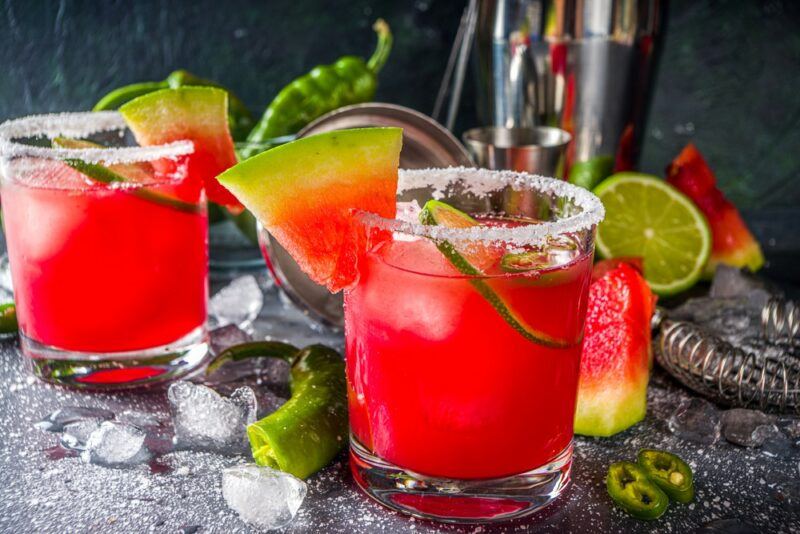
While jalapenos are famous for their spiciness, they’re hardly the spiciest peppers out there. This can be seen by looking at the Scoville Scale, which measures the relative heat of peppers, based on their capsaicin content.
On this scale, jalapenos tend to fall between 2,500 and 5,000 heat units, while bell peppers (which aren’t spicy at all) have a score of zero. Other hot peppers have much more impressive values, like 30,000 to 50,000 for cayenne pepper, and around 1 million for the ghost pepper.
In many ways, then, jalapenos act as a gateway into the world of spicy peppers. They’re certainly easier to enjoy than the hotter entries and may cause fewer heat-related side effects as well.
Jalapenos Versus Other Hot Peppers
As we’ve already seen, jalapenos are just one type of hot pepper and they’re relatively mild.
The other types of peppers share many of the same features as jalapenos, including offering some fiber, nutrients, and a decent amount of antioxidants. As such, many of the health benefits should be the same as well.
The difference in capsaicin content is what makes things really interesting. This compound doesn’t just influence the heat of your hot peppers. Many of the benefits we’ve talked about are linked to the capsaicin content as well.
This should mean that the hotter peppers, the ones with more capsaicin,should offer more health benefits than jalapenos do.
There’s a catch though. More capsaicin also means more heat and more heat-related side effects. Anyone sensitive to jalapenos, then, is likely to find hotter peppers very difficult indeed.
Final Thoughts
It’s easy to assume that the heat of jalapenos makes them an unhealthy choice, but research doesn’t support that idea at all. Instead, heat-providing compounds capsaicin may offer many different benefits, including decreasing inflammation and oxidation, protecting you against stomach ulcers, and helping to fight infections.
There are also other reasons to eat jalapenos regularly, including their fiber content, their nutrients, and the fact that they’re low in carbs.
Still, jalapenos aren’t for everyone. People with irritable bowel syndrome or heartburn may find that jalapenos make their symptoms worse.
In the end, it’s important to pay attention to your body and find what works for you. We’re all different, after all, so the best foods for one person could be quite different than the best foods for someone else.
Frequently Asked Questions
Are Jalapenos A Fruit?
Like other types of peppers, jalapenos are classed as a fruit. In fact, jalapenos are even a botanical berry, although we rarely call them that.
Do Jalapenos Turn Red?
While jalapenos are often harvested when they’re green, they will eventually turn red as they get riper. When this happens, the peppers get both sweeter and hotter, giving you quite a different experience.
How Long Do Jalapenos Last?
If jalapenos are whole and fresh, they’ll last a week or two kept in the fridge and just a couple of days at room temperature. Chopping the jalapenos decreases the shelf life, giving you just two to four days in the fridge.
Are Jalapenos Keto Friendly?
Jalapenos are excellent on keto, as they contain just one net gram of carb a piece. This also means you can make jalapeno poppers on a keto diet (in fact, they’re excellent examples of keto finger foods).
Can You Eat Jalapeno Seeds?
Yes, jalapeno seeds are completely edible and won’t cause any harm at all. Many people remove the seeds, as the spicy chemical capsaicin is concentrated around the seeds and membranes of jalapenos.







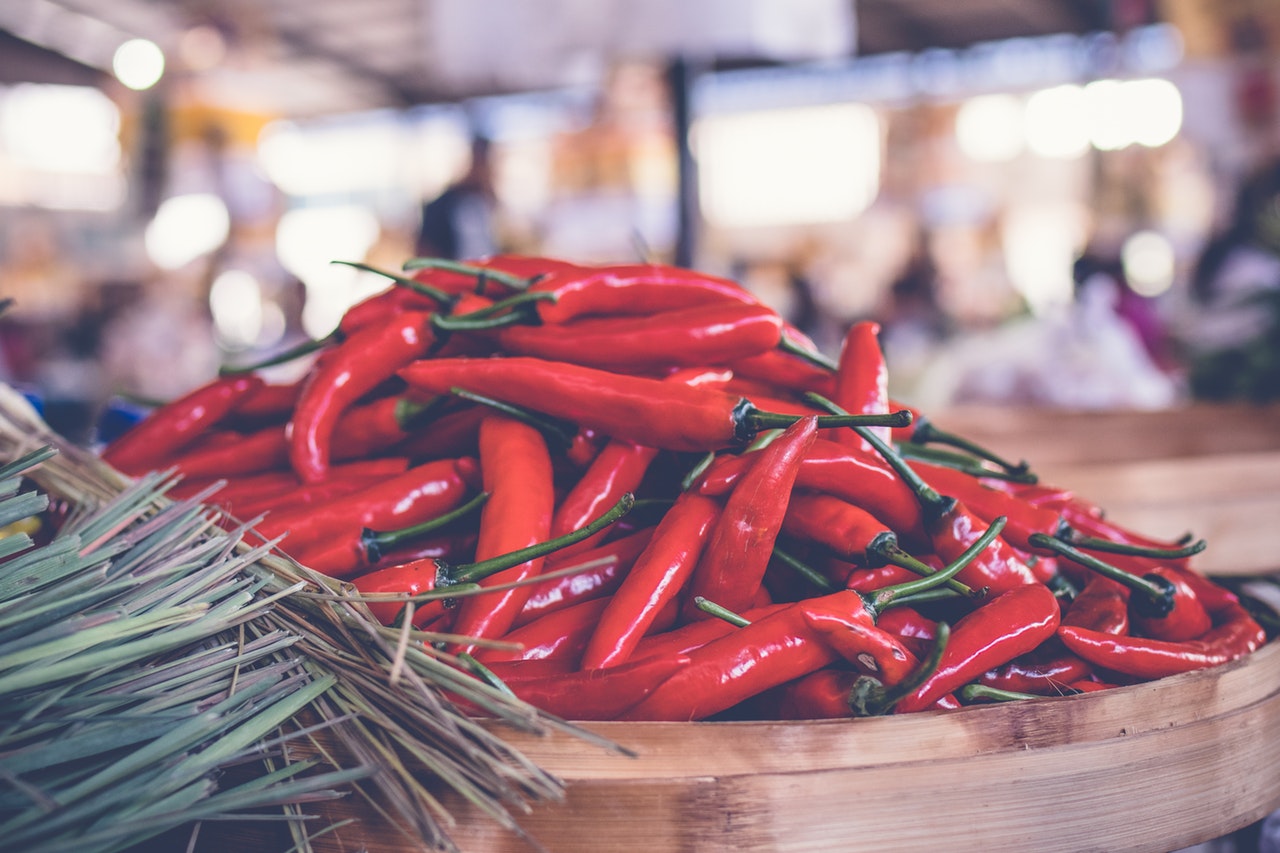
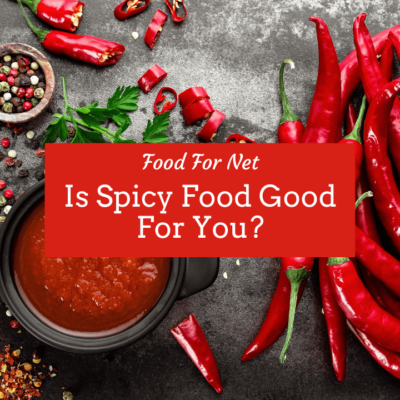
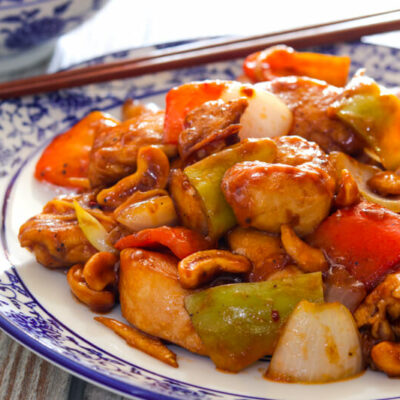







 10 Spices for Broccoli and Ten Ways to Serve This Veggie Healthily!
10 Spices for Broccoli and Ten Ways to Serve This Veggie Healthily!
Leave a Reply